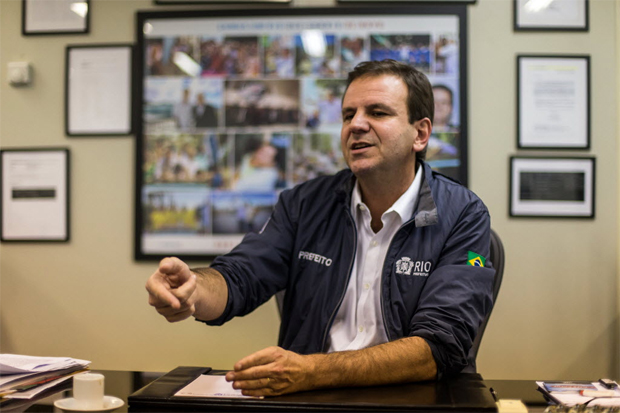Mayor of Rio Says Perception of Olympics Will Only Change with Time
Just days before the start of the Olympics, the major of Rio, Eduardo Paes (PMDB), says that the event will only develop a wholly positive image with time.
According to him, the "bad vibe" triggered by the economic and political crisis made it difficult for Brazilians to see the Olympics in a positive light. Paes says not even the event itself can change that. However, he is determined to defend the event. He insists that Brazilians should feel proud that a country in crisis was able to deliver without delay.
Folha - How would you rate the first few days of the Olympics?
Eduardo Paes - We experienced a management issue, one of negligence [at the Olympic Village], which served to mobilize everyone else to review their operations. If something is going to go wrong, you want it to happen at the start. The organizing committee is made up of many competent people.
Are there incompetent people on the committee?
They have failed before. The Village fell under the radar. I have met with the organizing committee, the IOC, almost daily in the last few months. It was never a point of concern. Now we must look forward and avoid repeating the errors made in the beginning. Problems will arise. It is natural for an event of this magnitude. But, they cannot be the result of carelessness.
We are now seeing a security issue.
That will be resolved.
You are not winging it?
It is unfair to say that we are winging an operation that involves a public safety force of more than 50 thousand men. What is important here is our capacity to react.
Capacity to react is the new "improvisation"?
That would be doing an injustice to Brazil, to Brazilians. A Brazilian was not responsible for the oversight at the Olympic Village [the responsible party was the Argentine Mario Clienti]. The Brazilian Rodrigo Tostes [Director of Operations] was the one who resolved the issue. Problems and contingencies occur all over the world. The Brazilian's ability to resolve these contingencies is a great testament to our competence. There is no improvisation. There is programming and organization.
The city hall has also set up emergency contracts.
Nothing was the result of lack of planning. There were companies that were working on sites inside the Olympic Park that did not line up with what was specified during the bidding process, and there are laws that specify how this type of issue is to be resolved. These are problems that can happen.
In 1996, Rio launched a bid to host the 2004 Olympics. The city waited 20 years for this moment. Was it worth it?
It has already proved worthwhile. In the future, the Olympics will still be seen as a rare municipal consensus, for a city project. Starting in the 1990s, the strategic plan set forth by the first César Maia administration presented hosting the Olympics as a transformative event for a city that had lost its vocation.
The Olympics arrived during a moment of crisis, which led you to describe it as "a lost opportunity".
It would have been better if the country had been in a more favorable position to display Brazil's qualities. I meant it in that sense. We have to feel pride for Brazil and the Olympics because, despite the hard times, we are delivering.
Half of all Brazilians feel the Olympics will bring more harm than good.
No criticism of the press, but that is because everyone reads Folha, "Estadão", and "Globo" papers. The press is expected to be critical. It is natural. But that criticism, during this difficult time in our country, has a contaminating effect.
Could that bad perception improve during the Olympics?
The perception of the Olympics as a whole develops over time. It is not going to be established after the distribution of the medals. It involves further analysis. There is not a bad vibe around the Olympics. There is a generalized bad vibe in Brazil. There's economic crisis, unemployment, inflation, political crisis, impeachment, political divide. The Olympics will provide some relief for this bad vibe.
Translated by SUGHEY RAMIREZ
Read the article in the original language
| Ricardo Borges/Folhapress | ||
 |
||
| Eduardo Paes, Rio de Janeiro's mayor, gestures during an interview with Folha |